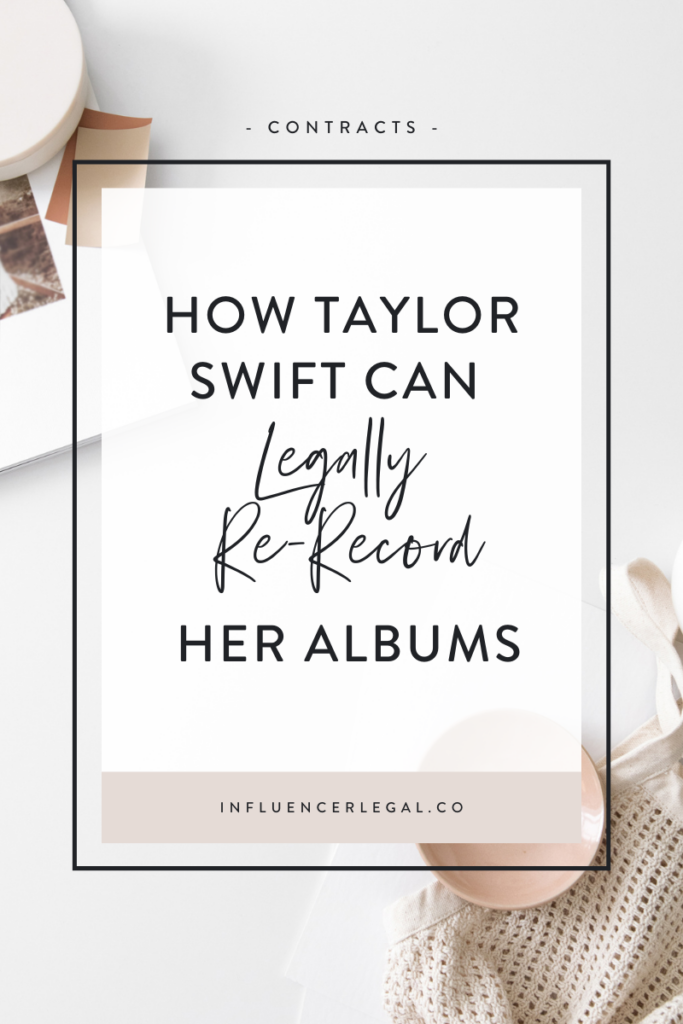
Taylor Swift’s decision to re-record her albums is creating a stir in the entertainment world and has caught the attention of both the music industry and Swifties. As an artist who highly values control and ownership, as well as standing for what is right, Swift is leveraging a legal loophole and strategy that enables her to revisit and re-record her earlier works while not violating existing copyright laws. This blog post explains the intricacies of how Taylor Swift can legally do this while not breaching any contracts and honoring copyright laws.
Copyright Law Explained
Copyright law grants creators rights to their works allowing them control over how their creations are used, reproduced, and distributed. When it comes to music, things can get more complicated. An easy explanation is that the original (master) recording of a song is safeguarded by copyright thereby preventing others from copying it or using it. In Swift’s case, when she was 15 she signed a contract that allowed her music label to own the masters of her first 6 albums thus leaving her with no control over how the songs were used.
However, Swift is leveraging an intriguing loophole in copyright law that says even though the original sound recording is copyrighted, the underlying composition and elements (ie. the music and lyrics) hold a separate copyright that Swift still owns. This separation allows artists such as Swift to legally re-record their songs by creating new sound recordings while staying within legal boundaries.
Contracts
Another factor to note in Taylor Swift’s endeavor to re-record her music is her contract with the record label that owns her masters. In this case, the contractual agreement that Swift has with her record label plays a role in this process as these agreements specify the timeframe Swift must wait before she is legally allowed to re-record her works. In this case, she was allowed to start re-recording some of her older tracks in November 2020. This explains why Swift is re-recording her older albums before more recent albums.
Re-Creation vs. Copying
Technically Swift cannot just go out and re-record the “Taylor’s Version” song in the exact same way as the original. The essence of Swift’s strategy for re-recording lies in re-creation rather, than mere copying. When she records new versions of her songs and albums it is essential that they showcase both originality and novelty. This involves approaching the production process from a perspective introducing new arrangements, vocal nuances, and instrumental variations that set apart the new recordings from the originals. This explains why some of the re-recordings sound a bit different than the original recordings.
Creative Evolution
Beyond the legal and technical aspects of Swift’s decision to re-record her albums, this also signifies a step in her creative journey. By revisiting her past work she has the chance to reinterpret her songs infusing them with her current identity and offering fans a fresh perspective on her cherished classics. This endeavor perfectly aligns with her commitment to authenticity, her personal growth as an artist, and her dedication to doing what’s right and taking a stand against those in the music trying to take advantage of other artists.
Taylor Swift’s choice to re-record her albums is a watershed moment for the music industry. By respecting copyright regulations and honoring her contractual agreements, Swift has paved an innovative path for artists to maintain ownership over their work and not give all their rights and power to their music labels. As Swifties anxiously await these re-recorded masterpieces, the music industry now must evolve and acknowledge that this project has the potential to reshape how artists approach their music rights and their legacies.
READ & LEAVE A COMMENT
SHARE